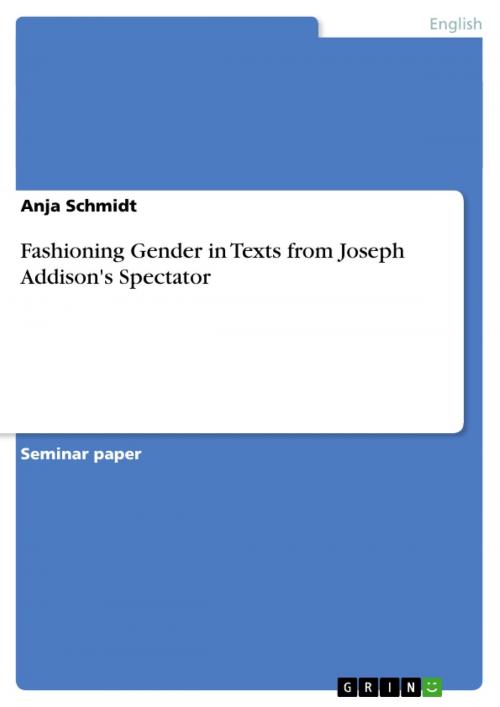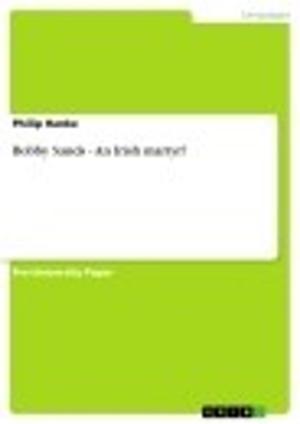Fashioning Gender in Texts from Joseph Addison's Spectator
Nonfiction, Reference & Language, Study Aids, ESL, Foreign Languages| Author: | Anja Schmidt | ISBN: | 9783640570010 |
| Publisher: | GRIN Publishing | Publication: | March 19, 2010 |
| Imprint: | GRIN Publishing | Language: | English |
| Author: | Anja Schmidt |
| ISBN: | 9783640570010 |
| Publisher: | GRIN Publishing |
| Publication: | March 19, 2010 |
| Imprint: | GRIN Publishing |
| Language: | English |
Seminar paper from the year 2004 in the subject English Language and Literature Studies - Culture and Applied Geography, grade: 1,7, Université de Paris VII - Denis Diderot, language: English, abstract: Joseph Addison in the disguise of his persona Mr. Spectator is not what his name suggests. Instead of being a mere member of the audience in the theatrum mundi he actively takes part in the century's favourite pastime: The Reformation of Manners. The eighteenth century saw the rise of the new middle class which, not being included in the traditional hierarchy, had to find codes of conduct enabling commerce and communication with other classes. In public, these relied heavily on presentation of the information necessary to inspire mutual confidence rather than on representation of the individual. In opposition to this, the private sphere was considered the place to be natural. While men were associated with the public sphere women were thought to be naturally more fit for a life in private, domestic surroundings. Far from being natural, however, living there also meant presentation following the rules of what was thought to be 'women's nature' rather than representation of one's individuality.
Seminar paper from the year 2004 in the subject English Language and Literature Studies - Culture and Applied Geography, grade: 1,7, Université de Paris VII - Denis Diderot, language: English, abstract: Joseph Addison in the disguise of his persona Mr. Spectator is not what his name suggests. Instead of being a mere member of the audience in the theatrum mundi he actively takes part in the century's favourite pastime: The Reformation of Manners. The eighteenth century saw the rise of the new middle class which, not being included in the traditional hierarchy, had to find codes of conduct enabling commerce and communication with other classes. In public, these relied heavily on presentation of the information necessary to inspire mutual confidence rather than on representation of the individual. In opposition to this, the private sphere was considered the place to be natural. While men were associated with the public sphere women were thought to be naturally more fit for a life in private, domestic surroundings. Far from being natural, however, living there also meant presentation following the rules of what was thought to be 'women's nature' rather than representation of one's individuality.















